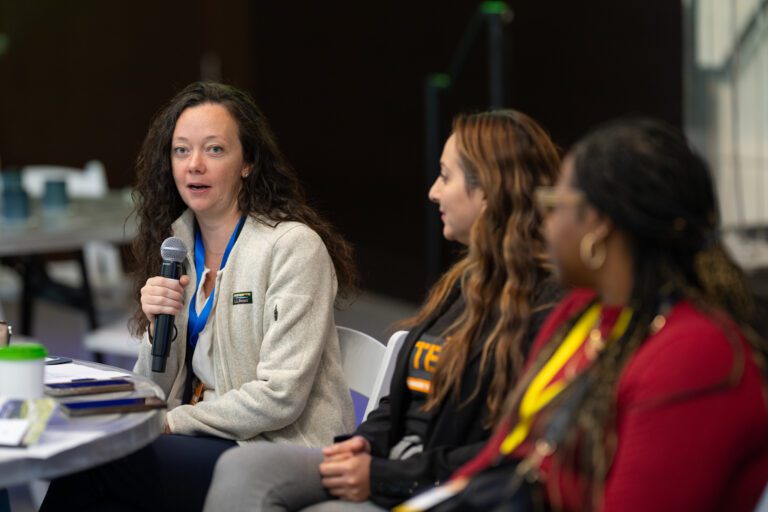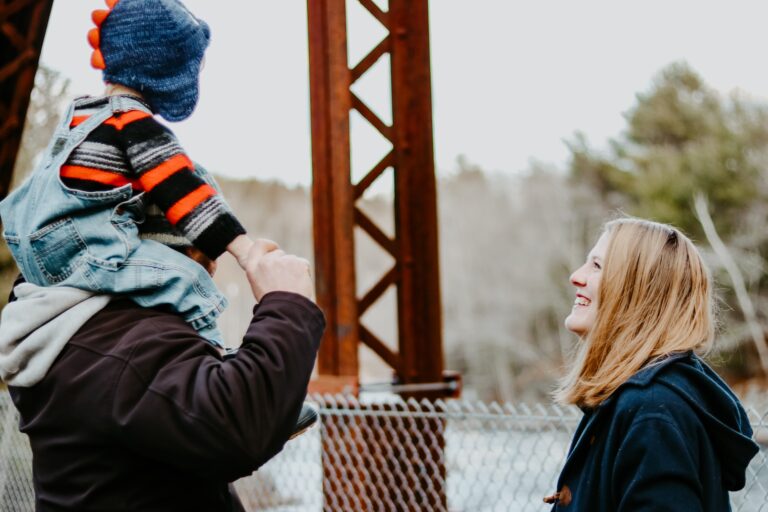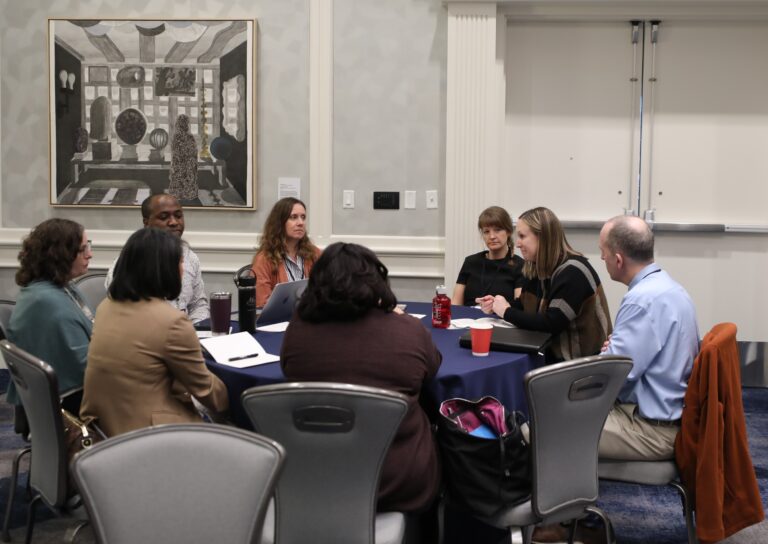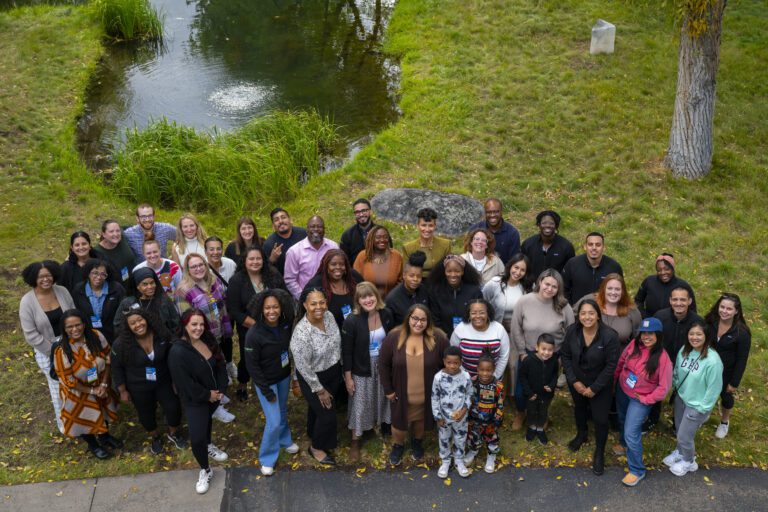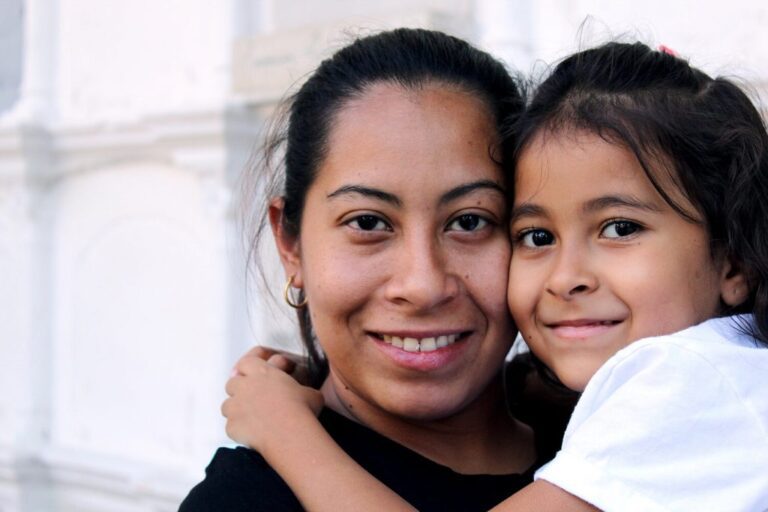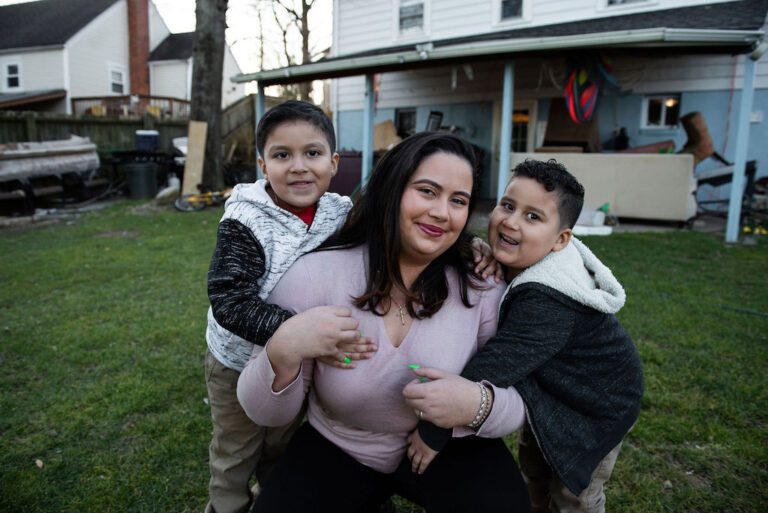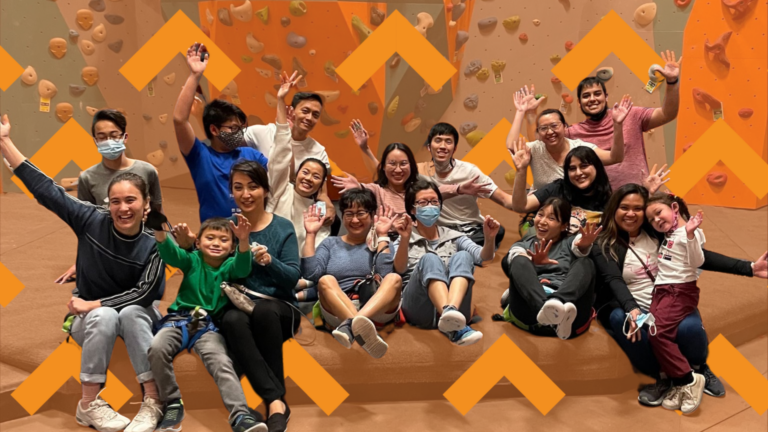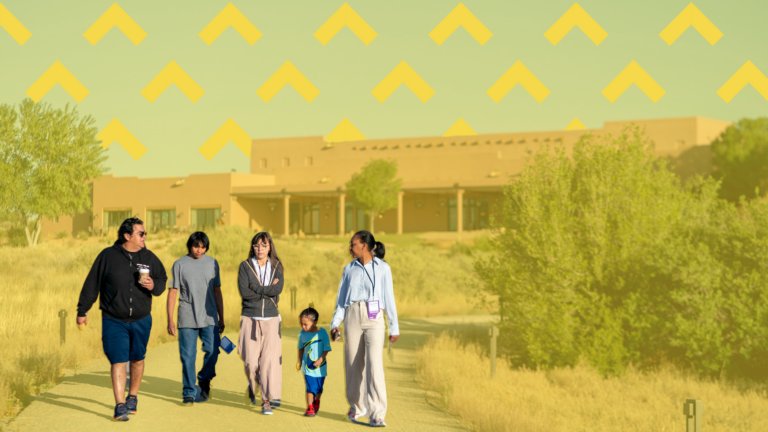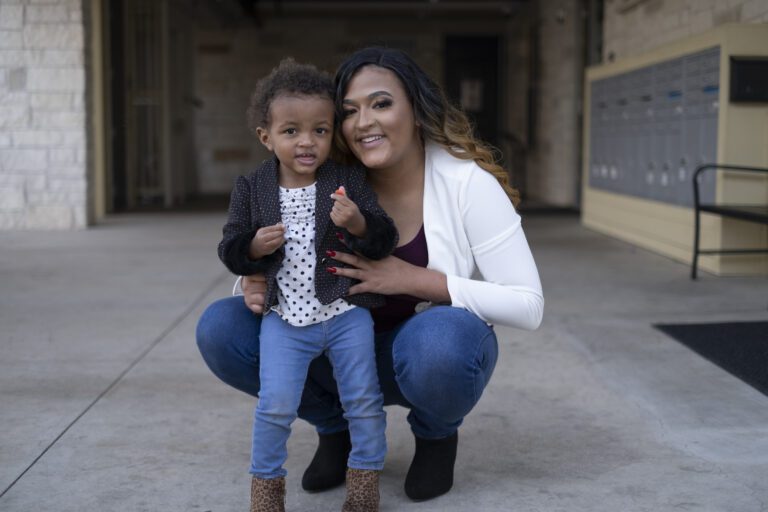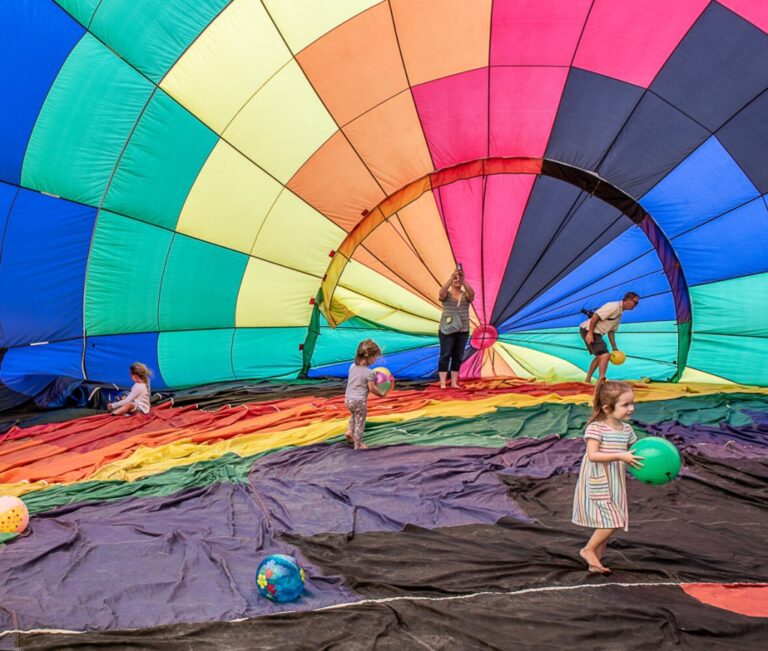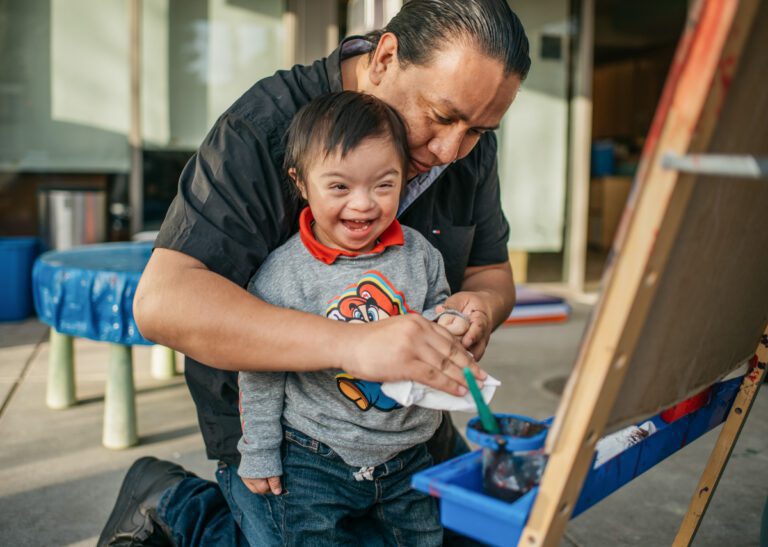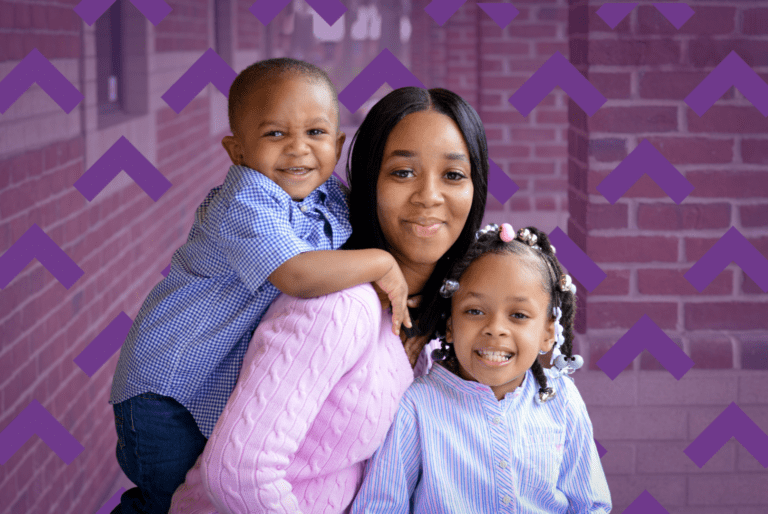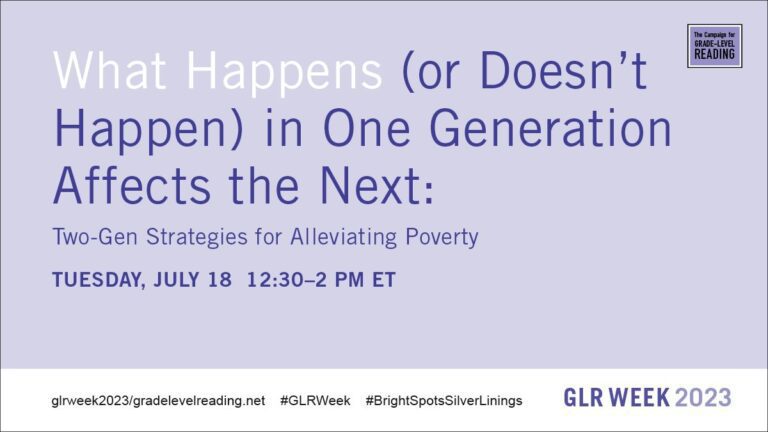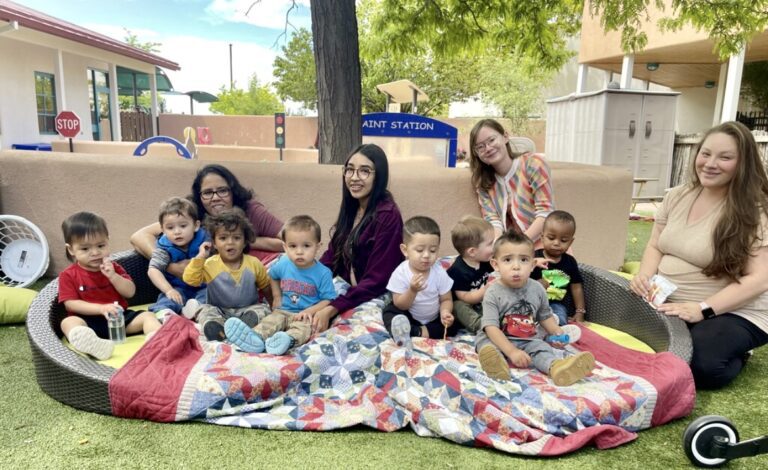Creating Intergenerational Opportunity for Families with Disabilities
When a child or a parent has a disability, it’s woven into the fabric of a family’s daily life. Families with disabilities remind us of our natural interdependence upon one another and our need to have integrated, coordinated systems of support to build well-being.
Families with disabilities have unique strengths. Taking a two-generation (2Gen) approach to work with the whole family to navigate challenges and sharpen their skills helps unlock the family’s valuable contributions to our communities. Three Ascend Network partners joined us for a 2Gen Learning & Impact office hours session to share how they are using a 2Gen approach to partner with families with disabilities so every member of the family can achieve their full potential.
A Child’s Haven
Berea, South Carolina
“We have been using a 2Gen approach for 30 years, but we just haven’t had that terminology until the last few years. What we do is treat our youngest children, from birth to age five, with developmental delays. One core service we provide is Therapeutic Child Care: it looks very much like child care, but it has smaller educator to learner ratios and it’s a nurturing environment for our providers to work on the social and emotional competence of children so that they can thrive in a mainstream school and educational setting.
What we have seen is that a lot of children are being expelled from child care centers, meaning more families are having to leave their jobs to care for their children. A lot of these families are already living in scarcity without resources they need, so everything we provide is free of charge to families who receive MedicAid. To address the rising expulsion rates in local childcare centers, we’re collaborating with community partners on a pilot program to address developmental delays and behavioral health issues early on. We’re expanding access to early intervention services and providing at least five local preschools with a therapist and/or case manager to deliver much-needed resources so every child and family has the best start possible.
We think about the whole family. So that’s taken shape in us extending our care program until 5 or 6pm to accommodate parents’ employment, providing transportation, as well as providing a parenting program. A lot of parents and caregivers have experienced trauma and violence, and we work on the health and well-being of parents so they can take the best care of their children and prevent a possible crisis.”
Tanya Camunas – Executive Director, A Child’s Haven
Crann Centre
County Cork, Ireland
“We are the first organization to use the 2Gen approach in the disability sector in Ireland. We offer a range of services in our work with children, adults, and families with neuro-physical disabilities. Our model focuses on six key areas, inspired by core components of whole family well-being in the 2Gen approach. This comprehensive model of care is a better way to serve people with disabilities and their families, and it’s more cost effective for those providing services.
Beyond clinical and medical needs – like occupational therapy, continence care, dietetics, and more – the need for social participation is one of the most significantly reported needs of families. Clients who come to Crann report a lack of peer support and accessible activities available in the community. Our social capital programmes offer a diverse range of services and supports to help meet these needs. Services such as parents cáfe, adult chat and connect groups, after school and youth clubs, and Crann’s breaking barriers drama group all help build social capital, increased social participation and inclusion, and decreased social isolation across the family. We’ve also developed Ireland’s first fully accessible playground so that families can play together.
Our psychological supports are offered to all family members recognizing the impact of disability on the entire family. Services such as counseling, play therapy, reflexology, and self care workshops are provided by trained therapists with expertise working in the area of neuro-physical disability. Our 2Gen approach provides services across the family continuum, which within the Irish healthcare context does not currently exist elsewhere, as it sees people treated in a linear fashion. Our psychological well-being team sees significant outcomes in mental health in terms of reduction in anxiety, depression, improved family communication and coping skills.”
Padraig Mallon – CEO, Crann Centre
Turnstone
Fort Wayne, Indiana
“We serve children and adults with disabilities through services like physical therapy, occupational therapy, speech therapy, counseling, case management, early learning, an adult day center, adaptive sports, a fitness & aquatics center, and more. We’re also one of nine US Olympic and Paralympic training sites. Last year alone we served 3,300 individuals, regardless of their ability to pay.
The clients we serve don’t just come in as individuals. At our core, Turnstone looks at how our programming impacts the lives of individuals as well as their families. We give families a platform, and families are instrumental in developing treatment plans. In our most recent client survey, 98% of our families reported they were able to guide their treatment. That’s an incredible indicator for outcomes; but it also really impacts their perception of their own self-efficacy as many families with disabilities have been conditioned by society to expect and accept less.
What we’ve really learned over our 80 years is that our families have tremendous assets. Caregivers and families with disabilities are incredibly innovative and resourceful as they’ve had work to overcome barriers, oftentimes with less financial and social capital. We’ve established a client advisory council that’s instrumental in guiding strategic and operational changes because we don’t just do things for families, we’re doing things with them.”
Luke Morgan – Chief Operations Officer, Turnstone
Families with a disability are more likely to face economic insecurity. These three nonprofits offer proven, practical examples of how we can work together with families to create a society that values and empowers people with disabilities. We hope they will inspire and motivate funders, policymakers, and practitioners to create more cross-sector partnerships to address these challenges and moreover build family well-being with the disability community.
Related Posts
